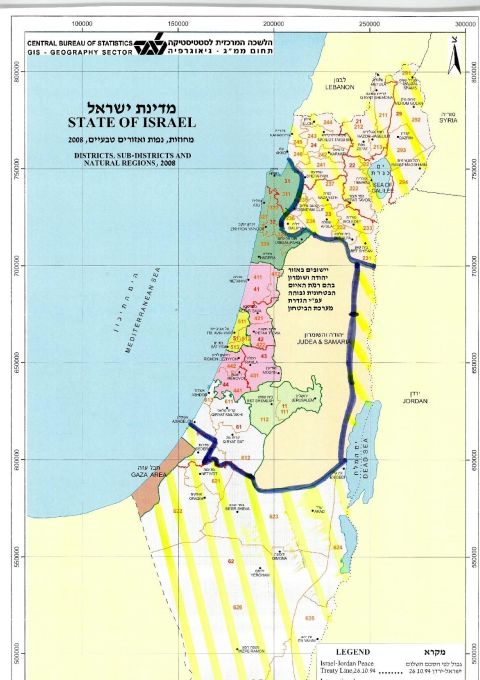UPDATES
The truth about Israeli-Arabs and Israel’s ‘national priority areas’
October 19, 2012 | Or Avi Guy

Earlier this week it was reported in the Age that visiting Israeli Human rights activist Hagai El-Ad, executive director of the Association for Civil Rights in Israel (ACRI) had, at a public meeting, expressed concerns that “the very idea of equality under the law for all citizens in Israel is increasingly under threat.” To back up this claim, El-Ad asserted, according to the article, that Arab citizens of Israel were discriminated against by the Israeli government when it drew the map of “national priority areas,” and thus were deprived of government benefits granted to the residents of such areas. “The government drew a line on the map, and if you are on the right side you get tax handouts and government services, and it was drawn in a way that favoured Jewish centres and not Arabs,” El-Ad claimed.
This might sound frightening, but El-Ad’s description of civil rights in Israel, and in this case the rights of Arab citizens, is grossly misleading. In fact, contrary to his assertions, the long-running legal saga and public debate in Israel concerning “national priority areas” is a great example of how, far from being under threat, Israeli society continues to successfully strive to entrench and improve “equality under the law for all citizens.”
The legal debate over national priority areas is a complicated issue, discussed since 1998 in Israeli courts and in the Knesset, and impossible to summarise in detail here. Like many legal-political issues, inclusion in national priority areas (and benefits that come with it, such as lower tax rates, government aid and subsidies in housing, education etc) affects many different communities; Arab villages, development towns, rural areas, border communities – the list goes on and on. Everyone wants government assistance and benefits, they all make claims, most have solid cases and arguments for inclusion and eligibility. While groups like ACRI have focused on the effects of the rules on Arab villages, there is a great deal more to this long-running debate than this single question.
However, since the first map of priority areas was drafted, ACRI and other NGOs have attempted to take the Israeli government to court arguing that Arabs were intentionally excluded from the map. “The court has accepted our argument,” El-Ad noted in the Age article. That’s only partly true. The Israeli courts found no evidence of deliberate discrimination – however they did order the government to include more Arab villages in national priority areas.
In fact, in 2009 a government resolution was passed, resolution no. 1060 (13.12.2009), which redrafted and redefined the criteria for national priority status. According to the resolution, 40% of the residents of the “national priority areas” are Arab, while their proportion in the general population is only 20%. Since then, another government resolution passed, resolution no. 4192 (29.1.2012), which further increased the number of Arab villages included in the national priority map.
Therefore, while the legal and political debate continues over the implementation of preferential policies towards residents of national priority areas, presenting the issue as a case of institutionalised discrimination is, at best, exaggerated. And presenting it as an example of how “equality under the law for all citizens in Israel is increasingly under threat” is absurd. This is a case where any hint of discrimination was self-corrected by Israeli society, and whatever the debate about implementation, official national priority areas policy now, if anything, disproportionately includes Israel’s Arab minority.
This is yet another good example of Israeli democracy working as it should, even if the process has been complex and messy and not everyone is yet satisfied with the final outcome. Prohibiting discrimination under the law and providing citizens with legal mechanisms to argue their case is the democratic way to ensure that policy can be addressed and corrected, when necessary, to promote equality, and this is exactly what is happening in this case.
Or Avi-Guy
Tags: Israel





